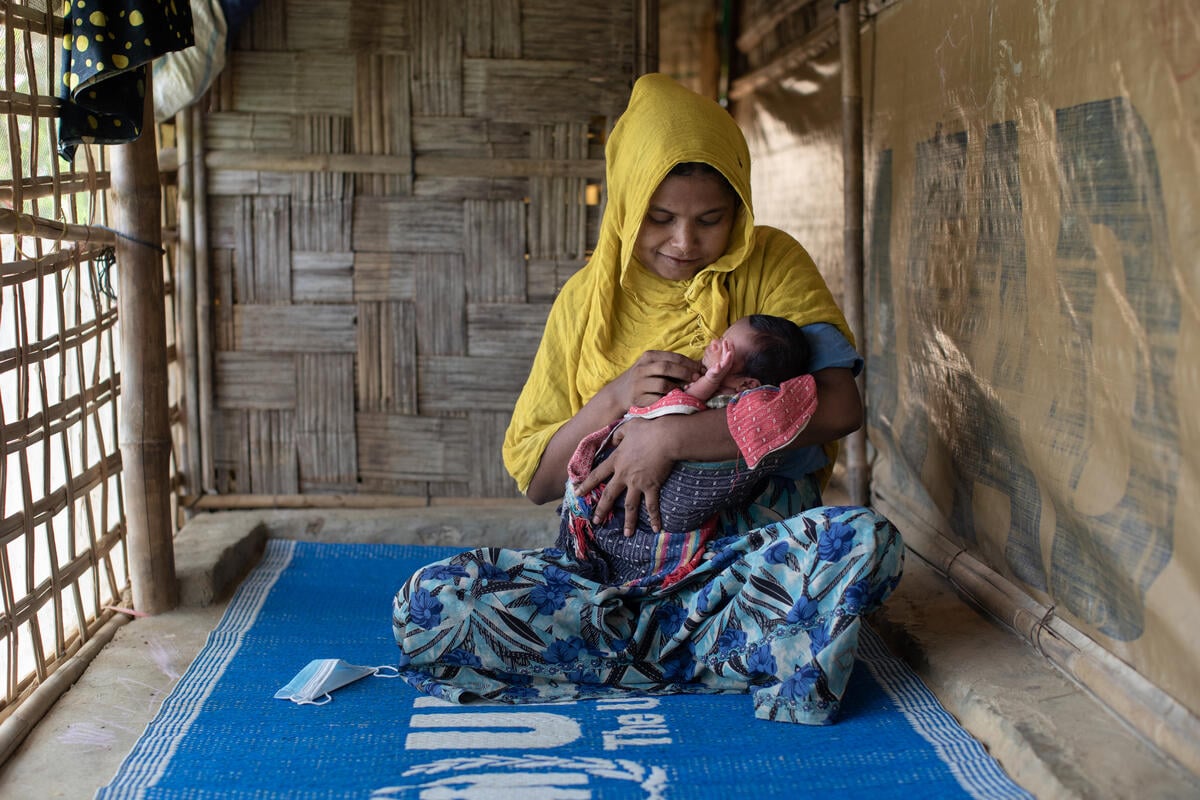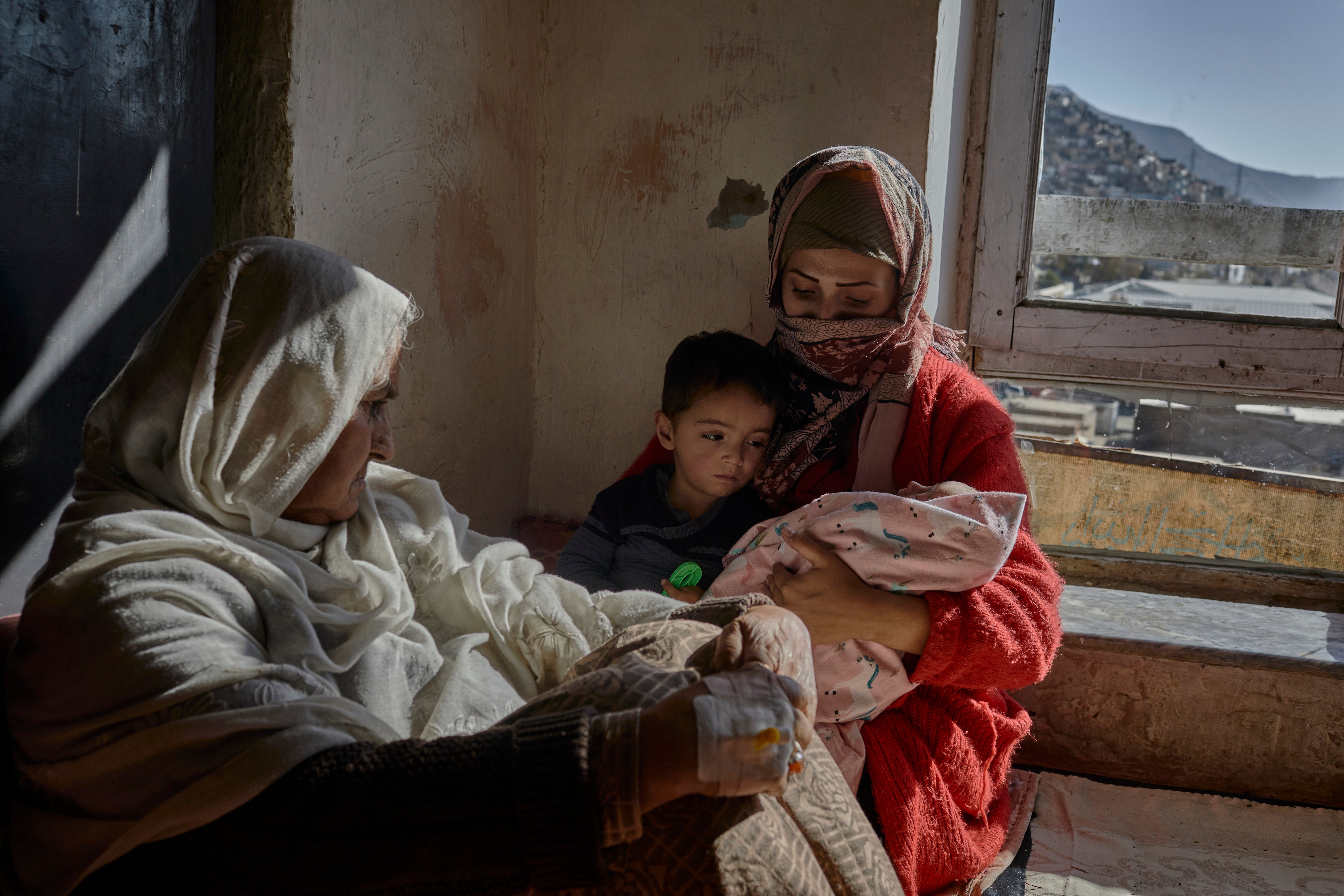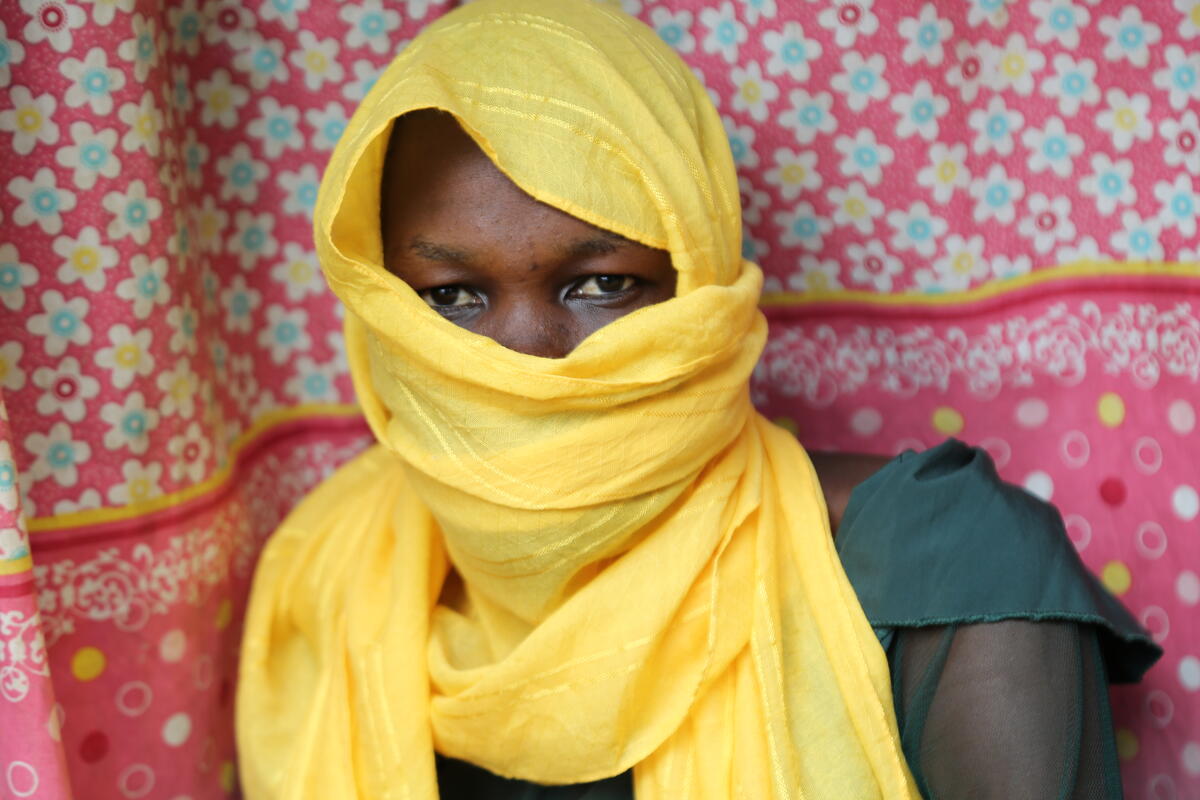Peruvian and Venezuelan girls come together to campaign for social change
Peruvian and Venezuelan girls come together to campaign for social change

Pau* was 11 years old when she and her mother left their native Venezuela to make the exhausting overland journey to Peru. For Pau, the transition was a difficult one. At her new school in the Peruvian capital, Lima, she became the brunt of so much bullying that she fell into a deep depression. Things got so bad that the preteen decided to adopt a Peruvian accent in a bid to no longer stand out.
“It was very painful, having to lose my identity,” recalled Pau, who is now 15.
But in 2021, her mother heard about an organization, called Quinta Ola, that was working to empower young Peruvian women and Venezuelan refugees and migrants from the same demographic. She signed Pau up for one of the group’s virtual programmes during the COVID-19 pandemic. The online sessions for young Venezuelan women covered topics such as sexism, xenophobia, gender-based violence and youth activism, and gave them the confidence and tools to participate in campaigns for social change and even to design their own initiatives. Other sessions brought the Venezuelan and Peruvian girls together, stoking cross-cultural friendships.
"Now, I feel much more self-assured."
The sessions “gave me the chance to learn about my rights and understand what I, as a human being, deserve,” said Pau, adding that the programme, known as “Chamas en Acción,” or Girls in Action, had restored much of her prior confidence. “Having to leave my country demolished my self-esteem. But now, I feel much more self-assured.”
The programme also allowed her to bond with Peruvian girls her age.
“I see [Quinta Ola] as a family, the girls are like my sisters,” said Pau, adding that her friendship with a 16-year-old Peruvian named Suyay had proved particularly rewarding.
Suyay said the sessions were eye-opening for her too.
“I was able to connect with the Venezuelan girls … because like me, they were also interested in feminism, empowerment and activism,” said Suyay. “Knowing we had something in common was super important to being able to connect.”
Founded in 2017 by three Peruvian women in their early thirties, Quinta Ola – which translates to Fifth Wave, in a reference to the successive stages of the feminist movement – teaches women and girls political empowerment through workshops, community organizing, and activism. It also includes mentorships aimed at helping participants identify the types of the social change they want to champion.
The seed for the organization was planted one day when the three friends, Beatriz Córdova Aquino, Gianina Márquez Olivera and Karina Nuñez Paz, were discussing gender-based violence and came to the terrible realization that it had affected nearly every woman they knew.
“At that moment, a flame was lit within us,” said Gianina, adding they wanted to find a way of breaking the cycle of violence by giving young women a voice within their own families and, eventually, a seat at the tables of power.
They initially created a group modelled after GirlGov, an empowerment programme pioneered in Pennsylvania, in the United States, and worked with no funding for the first year. But Quinta Ola’s work with Peruvian girls won them kudos and attracted financial backing, allowing them to extend their programming to include refugee and migrant girls.
This June, Quinta Ola was among seven women-led organizations to win UNHCR’s annual NGO Innovation Awards (supported this year through Safe from the Start funding from the US government) for its work focusing on the empowerment of Venezuelan girls.
- See also: Yazidi women box their way to recovery
With more than 1.32 million Venezuelans now registered in Peru, the country is host to the world’s second-largest population of Venezuelan refugees and migrants – most of whom, like Pau’s family, have settled in Lima and the surrounding area. While the Peruvian government has worked to regularize the Venezuelan population, many report facing discrimination.
“Teenage girls from Venezuela find themselves triply discriminated against – for being young, for being women, and for being foreigners,” said Karina, one of Quinta Ola’s founders. “For them, the situation is even more critical [than for their Peruvian counterparts] as their support networks and capacity to mobilize are both very limited.”
Participants in Quinta Ola’s “Girls in Action” programme identified the fight against xenophobia as one of their top priorities. The girls created a survey to gather data about the discrimination Venezuelans in Peru were facing and used their findings to develop recommendations for public policies aimed at curbing xenophobia, which they dispatched to Peru’s regional governments. They also formed working groups to address the hyper-sexualization of Venezuelan women and girls and discrimination in access to education.
Fourteen-year-old María*, a Venezuelan “Girls in Action” participant who also struggled to adapt to her new life in Lima, credited the programme not only with giving her the inner fortitude to carry on, but also showing her a path towards effecting lasting change.
“I’ve learned so much about society, about the world and about myself,” she said, adding that “activism has become something fundamental for me. I sincerely don’t know what would have become of me if I hadn’t become an activist.”
*The Quinta Ola participants asked to use only their first names.












